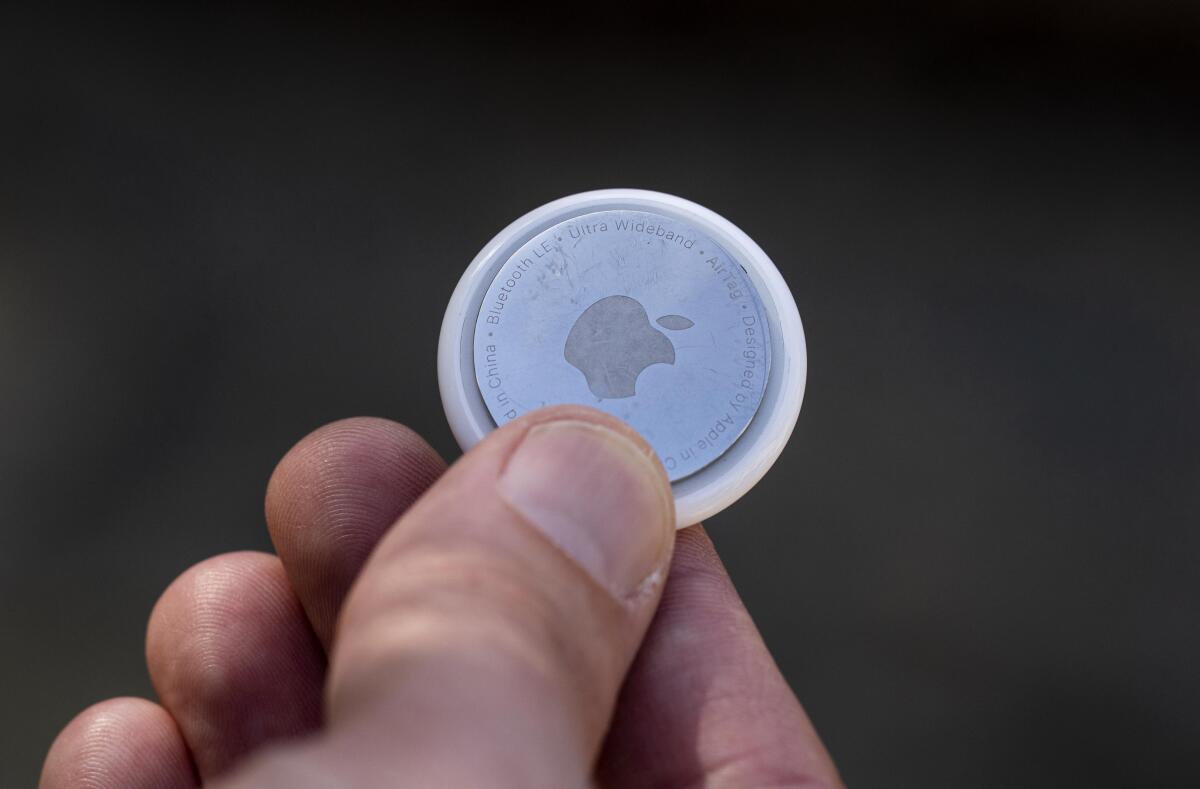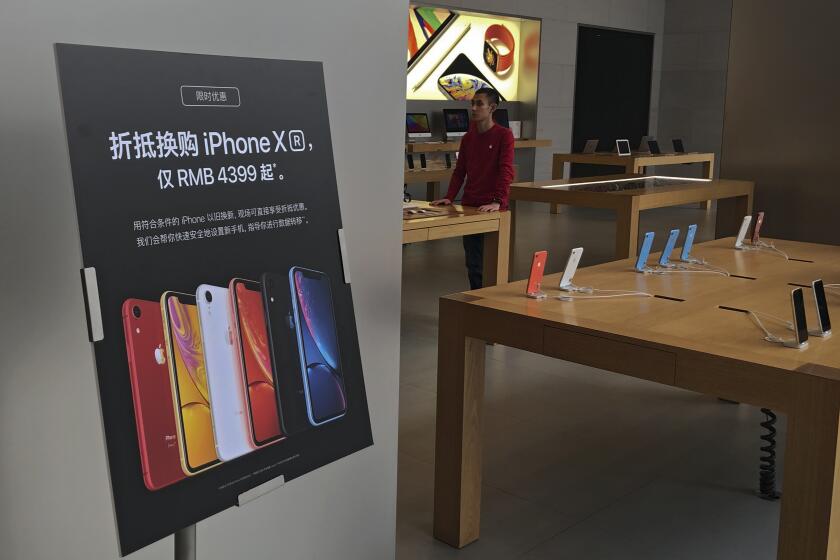Stalked with an AirTag? A class-action lawsuit against Apple in California will move forward

- Share via
Victims of stalkers who used Apple AirTags to track their whereabouts will be able to move forward with their lawsuit against the tech giant, a federal judge has ruled.
Friday’s decision by U.S. District Judge Vince Chhabria in San Francisco came in a class-action lawsuit that accuses Apple of taking inadequate steps to prevent stalkers from using the AirTag tracking devices, which the Silicon Valley company once called “stalker-proof.”
The judge dismissed numerous claims, but allowed a select few to proceed past Apple’s motion to dismiss the lawsuit, adding that Apple may prevail later in the case.
“Apple may ultimately be right that California law did not require it to do more to diminish the ability of stalkers to use AirTags effectively, but that determination cannot be made at this early stage,” the judge wrote in the decision.
The lawsuit, filed by 38 plaintiffs, cited the “unparalleled accuracy, ease of use (it fits seamlessly into Apple’s existing suite of products), and affordability” as the factors that make the AirTag such an effective tool for stalkers. The AirTag was launched in 2021 by Apple in order to help users keep track of keys, phones and wallets.
Apple to pay $490 million to settle allegations that it misled investors about iPhone sales in China
Apple has agreed to pay $490 million to settle a class-action lawsuit alleging CEO Tim Cook misled investors about a steep downturn in iPhone sales in China.
Roughly the size of an overcoat button, an AirTag signals its location wirelessly to Apple’s iCloud service so it can be traced with Apple’s Find My app. The AirTag’s signal is encrypted, but that doesn’t stop stalkers from hiding AirTags in people’s cars or luggage and using them to follow their movements.
Apple has argued in the lawsuit that misuse of its products is not the company’s fault, but the fault of the user. The company cited a ruling related to car crashes during which a driver was distracted by an iPhone. In that case, Apple was not found liable.
But Chhabria said the harm in this case is directly related to the stated purpose of the product.
“A smartphone serves a great multitude of functions, one of which is video calls, and it’s only incidental to any of those functions that a user would be distracted and crash their car. But the sole function of a tracking device is to track location — and the injuries arise directly from the tracking device performing that function,” he wrote.
Apple has said it has worked to mitigate the issue.
“AirTag was designed to help people locate their personal belongings, not to track people or another person’s property, and we condemn in the strongest possible terms any malicious use of our products. Unwanted tracking has long been a societal problem, and we took this concern seriously in the design of AirTag,” the company said in a 2022 statement.
The company referred to notifications people are sent on their devices if there is an AirTag tracking them. The plaintiffs said, however, that sometimes users still do not understand they are being tracked and the notifications come hours after the device is attached.
More to Read
Sign up for Essential California
The most important California stories and recommendations in your inbox every morning.
You may occasionally receive promotional content from the Los Angeles Times.















